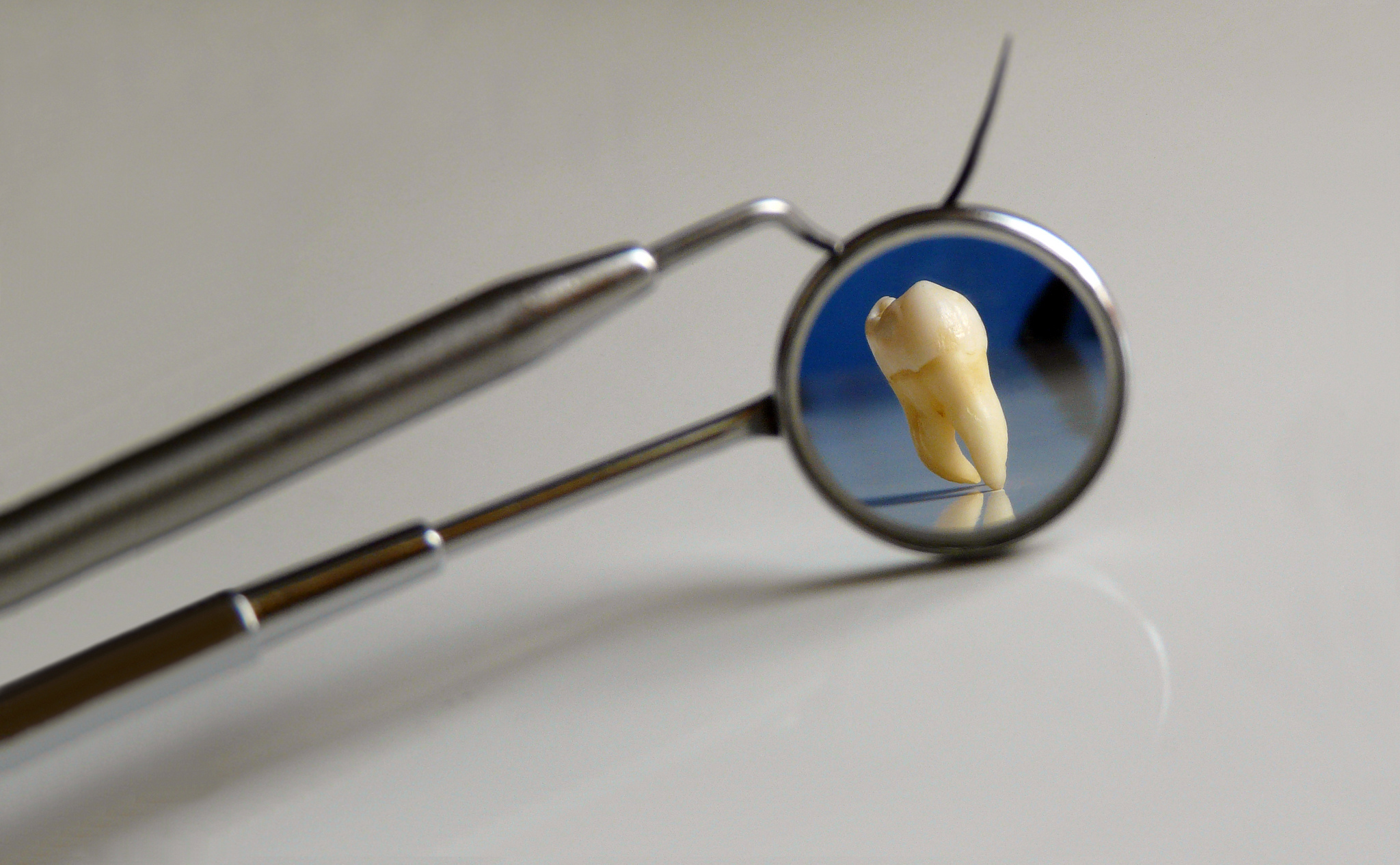Has Your Dentist Told You These Crucial Facts About Impacted Wisdom Teeth?
It’s crucial that you know these signs and symptoms of an impacted wisdom tooth. Here you’ll find crucial information and tips for taking care of wisdom teeth.

Photo by Partha S. Sahana via Flickr.
At some some point in life, almost everyone will have the deal with the negative aspects of impacted wisdom teeth. Here you’ll find everything you need to know about wisdom teeth, all the way from why they exists, how they affect you, and how to recover from wisdom tooth surgery.
What causes impacted wisdom teeth?
Wisdom teeth (3rd molars) usually emerge between the ages of 17 and 25. Impacted molars occur when the mouth is too crowded for them to erupt or develop normally.
Why do we have wisdom teeth?
Many evolutionary biologists classify wisdom teeth as vestigial organs, which are body parts that are now functionless due to evolution. The 3rd set of molars found in just about everyone’s mouth were extremely helpful to our ancestor’s diet. Once upon a time, early human diets consisted of rough food like roots, nuts, and meat that require more chewing power. This wore away their teeth, only to be replaced by an extra set of molars. Now that modern diet consists of softer foods, we’re stuck with a useless (and often) annoying set of spare teeth in our gums.
Signs of Impacted Wisdom teeth:
-
Sore and/or Bleeding gums
Tenderness and pain towards the back of the gums is a warning sign of an impacted tooth. Gums may also bleed with little provoking and have continual soreness with no relief. -
Painful jaw/headaches
And impacted wisdom tooth can lead to pain felt through the jaw and into the skull. This can result in terrible headaches. Often when this happens, you’ll notice pain in the jaw area. This is an indicator of a serious tooth impact that may have caused some nerve damage. -
Bad taste or Breath
Bacteria thrives in dark, damp places, which makes your mouth susceptible to infections. You’re at an even greater risk for an infection when an impacted tooth occurs. When wisdom teeth make an impact, bacteria builds up in the soft folds of the gums. -
Swelling Lymph nodes around the neck
Swollen Lymph nodes around the neck is a sign of a serious infection. This can occur when bacteria builds up in your gums in an impacted wisdom tooth area.
Complication caused by impacted wisdom teeth
The ADA warns against:
Other Damaged Teeth
When a wisdom tooth impacts another molar it could cause damage to your tooth and increase the risk of infection.
Misaligned bite
An impacted wisdom tooth may also cause your teeth to crowd and disalign your teeth. When that occurs, you would need orthodontic treatment to fix your misaligned bite.
Cysts
Within the jawbone, a wisdom tooth can cause a sac to develop. When left untreated, this can lead the sac to fill with fluid and turn into a cyst, which can damage the nerves, jaw, and gums.
Tooth decay
Because wisdom teeth create a breeding ground for bacteria, they are at higher risk for tooth erosion.
Gum disease
Without proper treatment, partially erupted wisdom teeth can cause infections that lead to a painful gum disease called Pericoronitis.
What to do if you have an impacted wisdom tooth
When you experience pain from an impacted wisdom tooth, it’s important to seek medical attention from your dentist as soon as possible. Procrastination will only increase risk for infections and even more damage to your oral health. However, there are a few ways to find some temporary pain relief in the meantime.
Temporary Pain Relief:
Cloves/ Clove Oil
When dealing with the pain of a wisdom tooth, you be surprised to know that you may have a helpful remedy sitting in your pantry. Cloves are an old wives’ trick for dealing with pain. Clove oil or cloves themselves can be used to ease pain naturally and effectively. To use clove oil, simply put some on a swab or cotton ball and spread the oil over the sore gums. If you're going to use a whole clove, place it directly on the the sore spot in your mouth. Be sure to keep it on until you feel it begin to numb.
Benzocaine
If the pain is particularly bad, you can also try Benzocaine. This type of pain reliever is found in gel-based products at a drug store. It helps to numb the sore area of your mouth caused by an impacted wisdom tooth. Before you apply it to the sore area in your mouth, be sure to wipe the area dry in order to get the best results.
Sore Mouth Rinse
Here’s another home remedy you can try to reduce the pain of wisdom teeth. All you have to do is mix a spoonful of salt in about a cup of warm water. Stir to dissolve, and then swish it in your mouth for about a minute before you spit. You can do this several times per day as needed.
Ibuprofen
Over the counter pain relievers like ibuprofen is another option to consider if you have some serious pain in your mouth. It’s important not to exceed the recommended amount, even when you feel like you need more pain relief. Be sure to follow the instructions on the label.
Reasons For/Against Wisdom Tooth Extraction
Although most dentists would recommend the removal of wisdom teeth, not all cases would require it. News Health Adviser offers a couple solutions in dealing with wisdom tooth impact:
-
Asymptomatic Impacted Wisdom Tooth.
Asymptomatic wisdom tooth is one that does not cause any pain or discomfort to your mouth.
Reasons to remove asymptomatic wisdom teeth immediately
-
Not all wisdom teeth impacts will remain “dormant” as far as pain goes.
-
Treatment and recovery is easier when you’re younger. So, the sooner you get it removed, the better.
Reasons why removal may not be necessary
-
The discomfort and probability of surgical complications outweigh the benefits.
-
There is little evidence proving that asymptomatic wisdom teeth cause problems later in life.
In this case, your dentist would monitor your teeth for any detrimental effects caused by an impacted wisdom tooth.
-
Discomforting Wisdom Tooth
Surgical removal for painful impacted wisdom teeth is usually the best option.
You should have your wisdom tooth removed when you have:
-
gum disease or infection
-
damage to surrounding teeth
-
formation of tumors or cysts
-
tooth decay
or any of the following caused by an impacted wisdom tooth.
How to Recover from Wisdom Tooth Surgery
Wisdom teeth surgeries are notorious for resulting in painful and awkward recovery. Here are some ways to help you recover:
-
Take the medication prescribed by your dentist as directed. He or she may prescribe pain killer and anti-biotics to take during the healing process. If they don’t prescribe anything to you, you can purchase over the counter drugs such as anti-inflammatory medication to relieve pain and inflammation.
-
Keep the area free from debris. Food can easily get caught in the gums where the teeth have been removed. Be sure to periodically check and clean the area to prevent infections.
-
Rinse your mouth constantly. Antiseptic rinse will keep the area clean and help remove bacteria from the area. Warm salt water can also help reduce discomfort and swelling.
-
Apply ice throughout the first day of surgery recovery to reduce swelling. Apply for 30 minutes, and then take a 5-10 minutes break. Repeat during the first 2-3 hours of surgery, or whenever you have extensive swelling.
-
Keep away from hard, solid food for the first week. Prepare foods that require little to no chewing and are easy on the teeth, like mashed potatoes or soups.
People often postpone getting their impacted wisdom teeth removed because of the expenses associated with it. Unfortunately, that only worsens the problem the longer you wait. Thankfully, you can opt for an affordable dental plan to help lower the cost and finally relieve your tooth pain.





